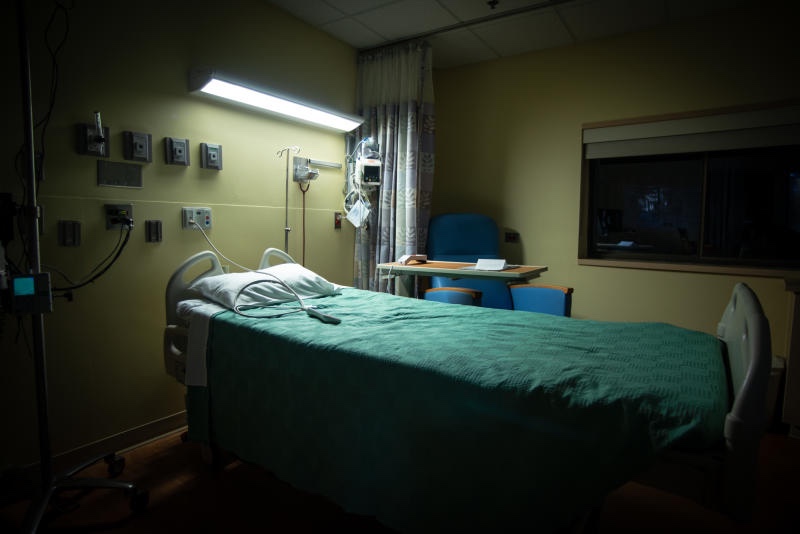Ever wondered why founding President Mzee Jomo Kenyatta died at 3.30am, and former President Daniel Arap Moi went to be with the Lord at 5.20am?
Kenya’s first attorney General Charles Mugane Njonjodied at 5am.
Sarah Obama, former USA President Barack Obama’s grandma, died at 4am while undergoing treatment at Jaramogi Oginga Odinga Referral Hospital in Kisumu.
Nyeri Governor Nderitu Gachagua died at 2.15am from Pancreatic cancer on January 6, 2019, while Migori senator Ben Oluoch died from throat cancer shortly after midnight on June 19, 2018.
Billionaire Naushad Merali; businessman and chairman of Sameer group, slipped away on July 3, 2021 at 5am, as did His Eminence, Maurice Michael Cardinal Otunga, the revered elder and the first Kenyan Cardinal of the Catholic Church, who died at 6:45am of cardiac arrest on September 6, 2003.
Well, turns out it is not just a coincidence.
Research has shown that most heart attacks happen in the morning and within the first few hours of waking up.
Not only that, various research has shown that many people are more likely to have a heart attack on a Monday morning. This applies to sudden cardiac death from life-threatening heart rhythm problems, and death from other heart diseases.
While no specific reason has been identified behind this phenomenon, it is said to be triggered by many causes, including a high level of stress hormones, blood being thinner in the morning, and an increase in blood pressure levels during morning hours.
Medical experts say that when you’re older, you are more likely to die in the late morning at around 11 am, than at any other time during the day.
Old people are likely to die in the morning as opposed to young people.
Death at dawn is attributed to a common gene variant affecting circadian rhythms and that variant could also predict the time of day you will die.
Dr Fred Bukachi, a cardiologist at Kenyatta National Hospital and lecturer at University of Nairobi and also proprietor of Luanda Heart Centre, notes that changes in the way older people live, also affects in most cases, the way they die.
He says, just as circadian rhythms regulate things like preferred sleep periods and the time of peak cognitive performance, they also regulate the times during which we’re most likely to experience an acute medical event like a stroke or heart attack. There is a “biological clock ticking in each of us.”
Bukachi adds that there seems to be one DNA sequence that determines, essentially, how each of us relate to time.
“Since circadian rhythms control wakefulness, alertness, blood pressure and heart efficiency, it stands to reason that the flip side could be true, as well: that the rhythms that stimulate human activity could also stimulate its end,” he said.
According to Bukachi, there is an increase in cardiac deaths from about 3 or 4am to about noon. This is thought to coincide with the increase in hormones, like cortisol and adrenaline, that increase heart rate and blood pressure, and may push someone with cardiac problems over the edge, causing cardiac death.
Each type of death has a “circadian rhythm,” tending to occur most commonly at a particular time of day, depending upon what types of physiological events tend to trigger it, and when they occur in the individual.
Why would we be more likely to die during 11am and less common at 6pm than at other times of the day?
Further, 11 am is also the most common time for getting hit by a bus, or bitten by a snake.
But for the population of people who have made it to old age, the people who will die of natural causes rather than circumstantial ones, there’s a probabilistic element to the time that they will die. And that’s because death by “natural” cause is natural in the fullest sense. The genetic messages that empower our lives will also orchestrate our deaths.
A patient might die when their loved ones step out of the room for a while or before they arrive. Many deaths happen when family members step out of the hospice room. Sometimes, a patient can’t or won’t die while family is present.
Dr Abdul Aziz argues that a host of studies dating as far back as the 1800s, to date, have consistently shown a sharp rise in human mortality between the hours of 2.00am and 8.00am on average.
“It’s been thought that it comes down to three main reasons. One, is the discovery artifact: which basically means the rise in reported deaths in the early morning is related to a statistical tendency for all deaths that occur during the usual hours of sleep or bedtime to be discovered when people wake up in the morning.
Two is uneven health care: the rise in deaths is related to differential quality and quantity in health care services stemming from lower numbers of healthcare personnel particularly nursing staff and doctors available in the aforementioned morning hours.
And thirdly, underlying disease processes such as heart disease, and hypertension interact with the early morning internal body clock, the deep sleep of that hour and prescribed medications culminating in increased incidences of both morbidity and mortality.
But what a joy it must be, to die peacefully in one’s sleep, knowing, perhaps, that hour is when millions of couples are locked in bliss, in search of the elusive g-spot!
There's no story that cannot be told. We cover the stories that others don't want to be told, we bring you all the news you need. If you have tips, exposes or any story you need to be told bluntly and all queries write to us [email protected] also find us on Telegram

